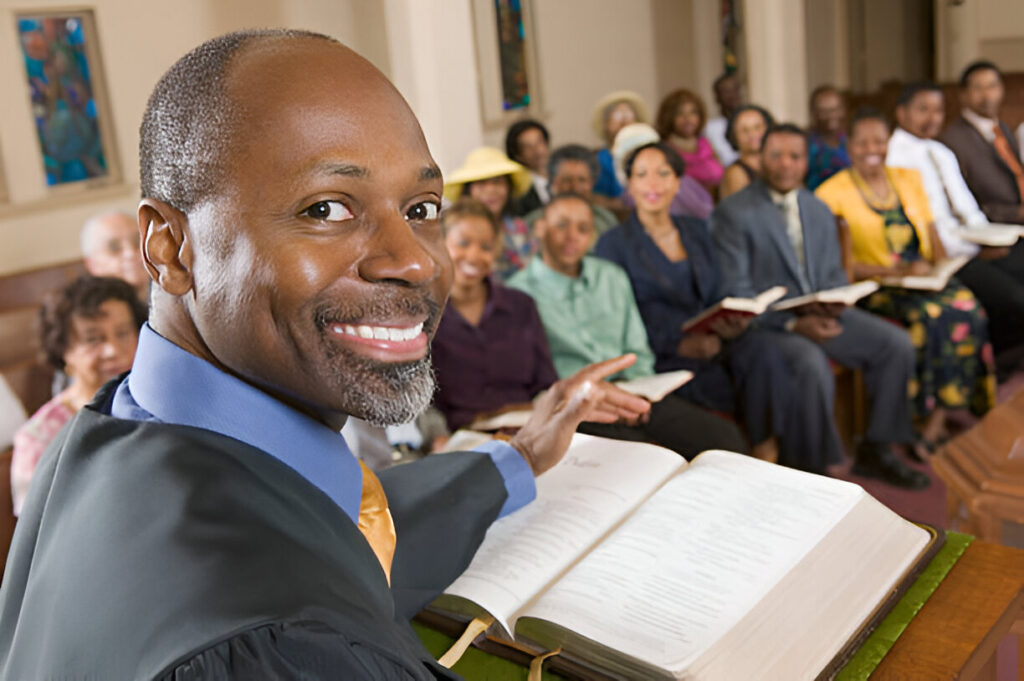
In the gospel of Matthew Jesus asks his disciples who they thought the Son on Man is. Peter answers “You are the Christ, the Son of the living God” (Matthew 16:16). Jesus tells Peter that it was his Father in heaven that had revealed this to you. Jesus than tells Peter “that upon this rock I will build my church” (verse 18). Peter explains this rock “Come to Christ, who is the living cornerstone of God’s temple. He was rejected by the people, but he is precious to God who chose him” (1 Peter 2:4). Upon His ascension to heaven and the outpouring of the Holy Spirit, the Body of Christ – church life and ministry began.
Gifts to the Church
Jesus has built his church and the gates of hell will not prevail against it. After he ascended up on high he “gave gifts to his People.”…”He is the one who gave these gifts to the church: The apostles, the prophets, the evangelists, and the pastors and teachers. Their responsibility is to equip God’s people to do his work and build up the church, the body of Christ, until we come to such unity in our faith and knowledge of God’s Son that we will be mature and full grown in the Lord, measuring up to the full stature of Christ” (Ephesians 4:8, 11-13). The gifts referred to in this passage are not the gifts given to men personally, but the gifts given by the Lord to His Church. And the gifts mentioned here are gifted workers whom the Lord of the Church bestows upon His Church for its edification.
The Head gives to the Church which is His Body certain men to serve the Body and build it up. We must distinguish between those gifts given by the Spirit to individuals and those given by the Lord to His Church. The former are given to believers personally; the latter are given to believers corporately. The former are things, and the latter are persons. The gifts given by the Spirit to individuals are their equipment to serve the Lord in prophesy, teaching, speaking in tongues, and healing the sick; the gifts given by the Lord to His Church as a Body are the persons who possess the gifts of the Spirit.
One Body

The first thing we must realize is that God has incorporated all His children into one Body. He recognizes no division of His people into various “churches.” He has designed that all who are His shall live a corporate life, the life of the body. Among whose many members there is mutual consideration, mutual love, and mutual understanding. And He has purposed that not only the life, but also the ministry of His children, should be on the principle of the body. That it should be a matter of mutual helpfulness, mutual edification, and mutual service. The activity of the many members of one body.
Church Life and Ministry
There are two aspects of the Body of Christ – life and ministry. The first half of Ephesians 4 speaks of the Body in relation to its ministry. The second half speaks of the Body in relation to its life. “Under his direction, the whole body is fitted together perfectly. As each part does its own special work, it helps the other parts grow, so that the whole body is healthy and growing and full of love” (Ephesians 4:16). Here it is ministry that is under consideration.
But in verse 25 the question is clearly one of life: “So put away all falsehood and tell your neighbour the truth because we belong to each other.” In Romans 12 we see how the members should care one for another. So that the thought there again is the manifestation of the one life. But in 1 Corinthians 12 we see how the members should serve one another, so the thought in that passage is the manifestation of the one ministry.
When we speak of the one Body, we emphasize the oneness of the life of all God’s children. When we speak of its many members, we emphasize the diversity of functions in that unity. The characteristic of the former is life; the characteristic of the latter is work. In a physical body the members differ one from another. They function as one, because they share one life and have the building up of the whole body as their one aim.
Local Church
Because the Body of Christ has these two different aspects – life and ministry – it consequently has two different outward manifestations. The church in a locality is used to express the life of the Body. The gifts in the Church are used to express the ministry of its members. In other words, each local church should stand on the ground of the Body. Regarding itself as an expression of the oneness of the life of the Body. And it should on no account admit division, since it exists as the manifestation of an indivisible life. The various ministers of the Church should likewise stand on the ground of the Body. Regarding themselves as an expression of the oneness of its varied ministries. Perfect fellowship and cooperation should characterize all their activity, for though their functions are diverse, their ministry is really one.
That churches are the local expression of the Body of Christ is an established fact. Some explanation is called for regarding the gifted ministers whom God has set in the Church as the expression of the ministry of the Body. In 1 Corinthians 12 Paul is clearly dealing with the question of Christian service. He likens the workers to different members of a body, and shows that each member has its specific use. All serve the body as belonging to it, not as distinct from it.
Functioning Members of the Body
The gifted ministers are the functioning members of the Body, and all their operations are as members. They are to the Church what hands, feet, mouth, and head are to the physical body. God’s servants do not minister to the Church as apart from it, but as its members. They are in the Body, serving it by the use of those faculties which they, as members, possess. A church in any locality is an expression of the Body. While its ministers are the expression of the difference and yet oneness of its ministry. Therefore, we see that when the life aspect of the Body of Christ is expressed, there you have a local church. When the work aspect is expressed, there you have a manifestation of the gifts God has given to His Church.
Today, those who have been selected by the Lord to preach the gospel and to establish churches call themselves “missionaries” which means the very same thing as “apostles,” that is , “the sent one.” It is the Latin form of the Greek equivalent, apostiles. The Word of God makes it clear that the oversight of a church is not the work of apostles, but of elders. “When they had appointed elders for them in every church and had prayed with fasting, they committed them to the Lord into whom they had believed” (Acts 14:23). The responsibility of an elder relates to matters temporal and spiritual. They are appointed to “lead,” and also to “instruct” and “shepherd.” “Let the elders who take the lead well be counted worthy of double honour, especially those who labour in word and teaching” (1 Timothy 5:17).
Pastoring and Teaching

In God’s plan provision has been made for the building up of local churches, and in that plan pastors have a place. Pastoring and teaching may be regarded as one ministry. Because those who teach must also shepherd, and those who shepherd must also teach. The two kinds of work are interrelated. But it was never His thought that apostles should assume the role of pastors. He purposed that apostles should be responsible for the work in different places, while elders were to bear responsibility in one place. The characteristic of an apostle is going; the characteristic of an elder is staying. It is not necessary that elders resign their ordinary professions and devote themselves exclusively to their duties in connection with the church. They are simply local men, following their usual pursuits and at the same time bearing special responsibilities in the church.
Prophets and Teachers
We must differentiate between the work of the elders, and the work of the prophets and teachers. Their work is different, but they are not necessarily different persons. It is quite possible for one person to act in both capacities. The elders are those who hold office in a local church. The prophets and teachers are the gifted ministers in a local church. The elders are for church government at all times; the prophets and teachers are for ministry in church meetings. Whenever there is a church, the Lord appoints elders for its government. He also gives gifts to some brothers to constitute them ministers for the meetings.
But this does not mean that elders have nothing to do with the meetings. Whenever government in the meetings is necessary, they can exercise authority there. As to ministry, though they cannot minister as elders, yet, it they are also prophets or teachers, they can minister in that capacity. It is almost imperative that elders be prophets and teacher; otherwise, they cannot rule the church effectively.
The Harvest Field

Here is the relationship between the churches, the ministry, and the work:
- God establishes a church in a locality.
- He raises up gifted men in the church for the ministry.
- He sends some of these specially equipped men out into the work.
- These men establish churches in different places.
- God raises up other gifted men among these churches for the ministry of building them up.
- Some of these in turn are thrust forth to work in other fields.
Thus, the work directly produces the churches, and the churches indirectly produce the work. So the churches and the work progress, moving in an ever-recurring cycle. The work always resulting directly in the founding of churches, and the churches always resulting indirectly in further work. “The church, which is His Body,” includes the churches, the ministry, and the work. The churches are the Body expressed locally, the ministry is the Body in function, and the work is the Body seeking increase. All three are different manifestations of the one Body, so they are all interdependent and interrelated.
In the wisdom of God, the ministry of God’s Word, to edify the Body of Christ, is the most important function of the Church. We need both the Word and the Spirit. May we all learn to meditate on the Word and to walk after the Spirit and not after the flesh, so that both in outward expression and inward condition the churches of God may be well-pleasing to Him.

